Huddle01 is building the future of communication systems by aiming to decentralize the entire communication stack one step at a time. As Messaging eventually got decentralized by Dapps like XMTP, Waku, and Daakiya, it’s only natural the next step of innovation would be a Wallet-to-Wallet calling system. Before going ahead, here is a guide for you to directly navigate to which part exactly appeals to you!
Okay, let’s breakdown what we are going to discuss today,
What is a decentralized communication system? 🌐
Why is it needed? 📞
AudioX, what’s that? 🔊
AudioX seems great, how does it work? 🤔
Damn! What’s next? 🤯
What is a decentralized communication system? 🌐
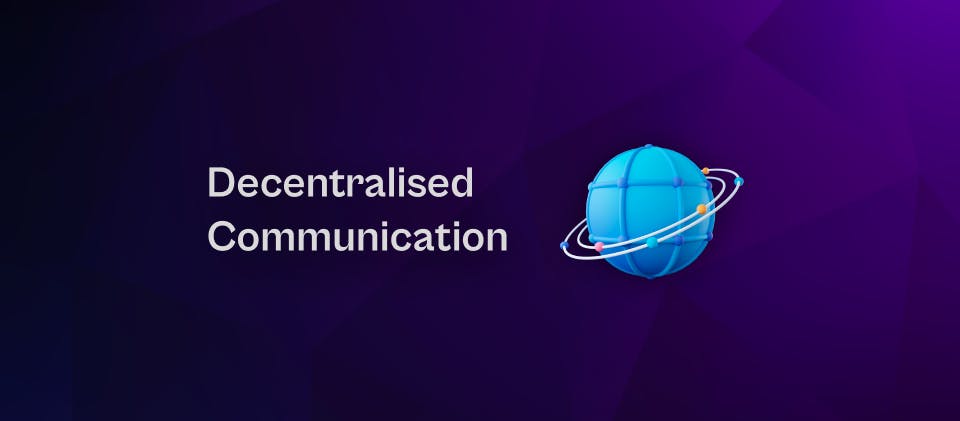
Any communication system that a centralized institution doesn’t operate is called a decentralized communication system. To give you an example, the current communication system works similarly to a village being fed by only one farmer. The farmer is the only source of food and his farm is as precious as gold. This gives the farmer immense power and can easily cut-off anyone’s food supply.
A decentralized communication system enables everyone to have small farms rather than a single person having a huge farm. Here, both can co-exist, but the farmer has no power over you, also you get a variety to choose from!
Why is it needed? 📞
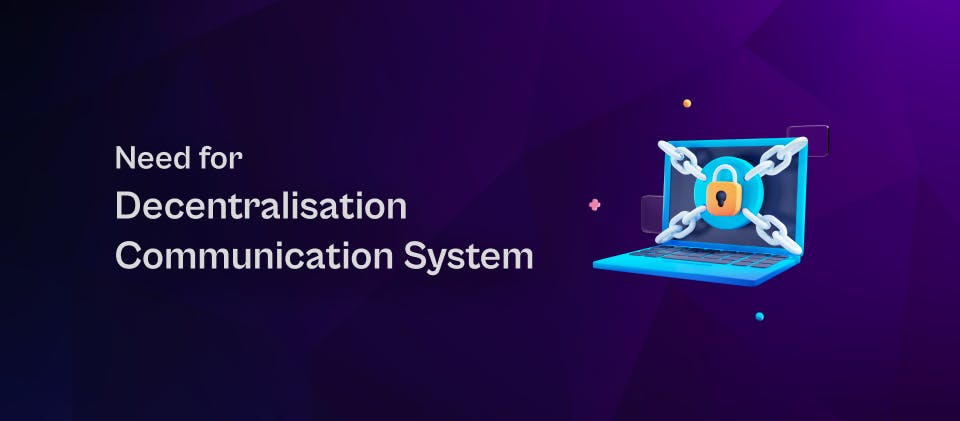
Okay, you might be wondering, but what if the Centralized organization, I don’t care if I have to buy from only one farmer as long as I get my food supply. I don’t care about other things. So let’s understand the real problems with the current system.
Let’s break them down into these issues:
1. Centralized control 🏦
It’s pretty clear that everything related to communications is controlled by a central structure, be it normal voice calling or platforms that provide support for VoIP (Voice Over Internet Protocol) usually control everything. It’s scary because your services can be cut off & accessed by a centralized entity at any point.
2. No anonymity 🎭
We all know how signups go for any platform that enables voice calling support, you can’t be anonymous even if you wanted. This creates a problem for the folks native to web3.
3. Single-dependant entity 🤧
As the name suggests, it is easy to deduce that we are dependent on a single entity, what if something goes wrong and you can’t communicate properly? I know there are many fail-safes in place for servers, but as the saying goes, “Never put all your eggs in one basket” and with so many fail-safes present, we still know that even Meta has outages. This means we can always design a system with a better approach.
Okay, this sounds like a problem, how do we tackle it ❓
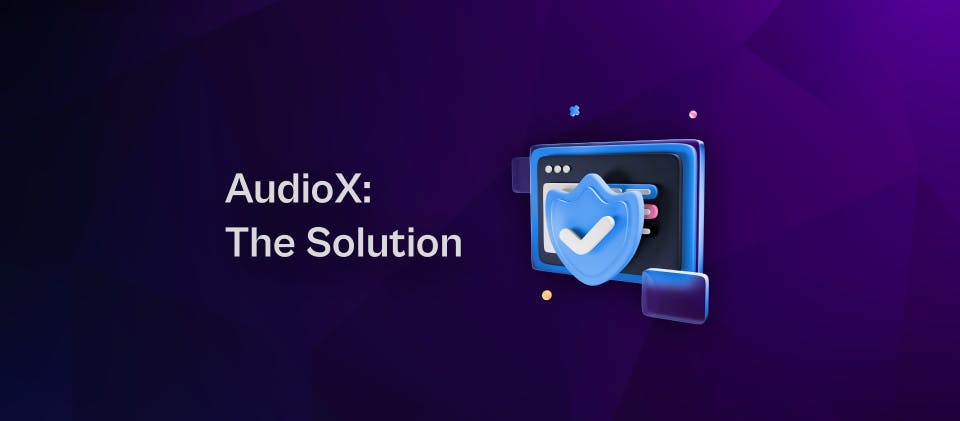
We believe the future lies with decentralized communication, where all problems are addressed. We developed a DApp that actually works for this!
Introducing AudioX, a Wallet to Wallet calling DApp. AudioX is a peer-to-peer communication DApp that currently supports voice, messages, and file sharing over Ethereum addresses, ENS domains, and Lens profiles. You can even call it the web3 equivalent of WhatsApp.
This sounds interesting, how does it work? 🤔
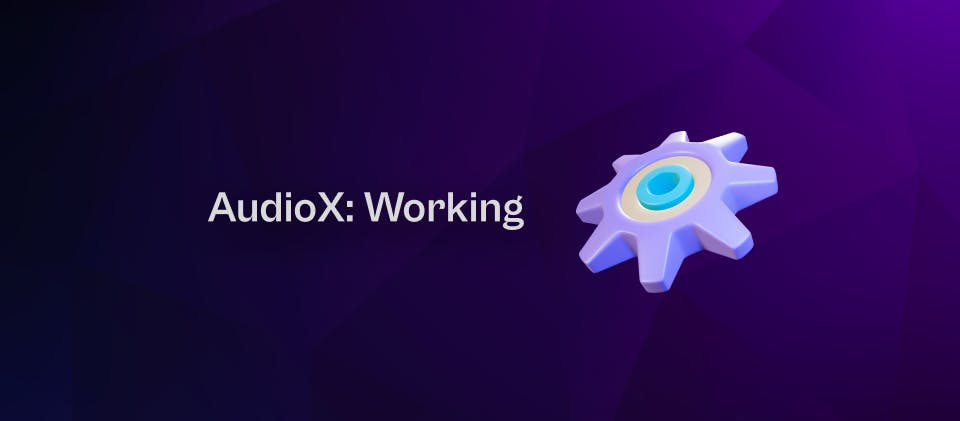
We can understand the entire framework with an example. So, let’s say there are two people Tony and Steve who want to call each other via AudioX. For this example, let’s say it’s Tony who is starting the call & dive deep into how things work at the backend. To have a call over Audio, both Tony and Steve have to set up a basic profile on AudioX for receiving calls by connecting their wallets that might consist of ENS or a Lens profile. Once set up is done, and both have enabled receiving calling option in the DApp, then comes the crispy part!
So Tony puts down Steve’s ENS in the search bar and initiates a call. We retrieve Steve’s wallet address and then this action sends an SDP (Session Description Protocol) message to the Signalling server.
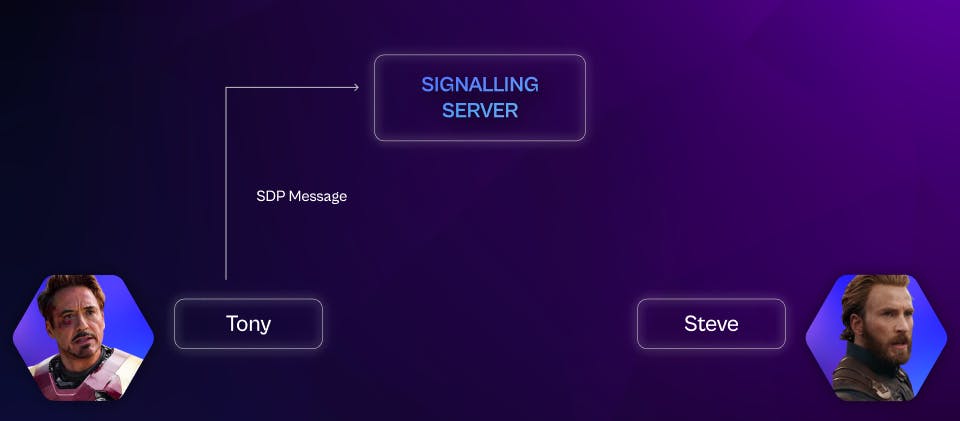
Hold on, what is SDP? What is a Signalling Server? 💬
The Signalling Server is an integral part of making connections between two clients. A Signalling Server is like a receptionist at a restaurant who checks if you have a reservation or not. Think of SDP as a formal request to the server to make a connection between two calling parties.
SDP consists of Steve’s wallet address which helps the server to find Steve & once Steve is found, the server then sends an SDP message to Steve about Tony calling. On Steve’s end, his action defines a new SDP message.
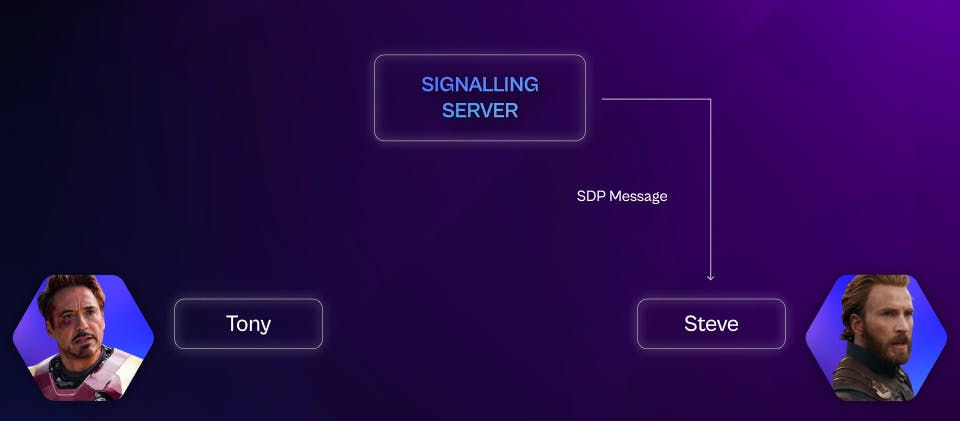
Okay wait a sec, what does Steve’s action mean? 😫
Steve can either answer the call, ignore or decline the call. This action then creates a new SDP message from Steve’s end which then goes to the Signalling server.
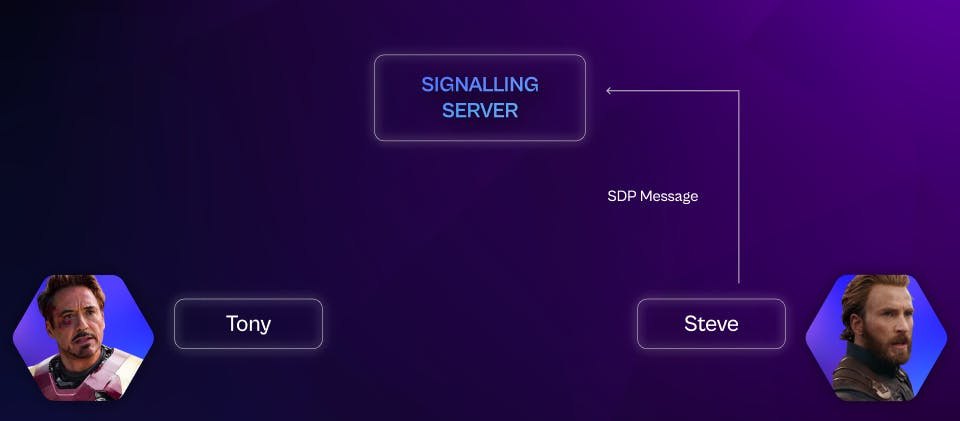
As Steve and Tony are besties, he obviously answers the call 🤗
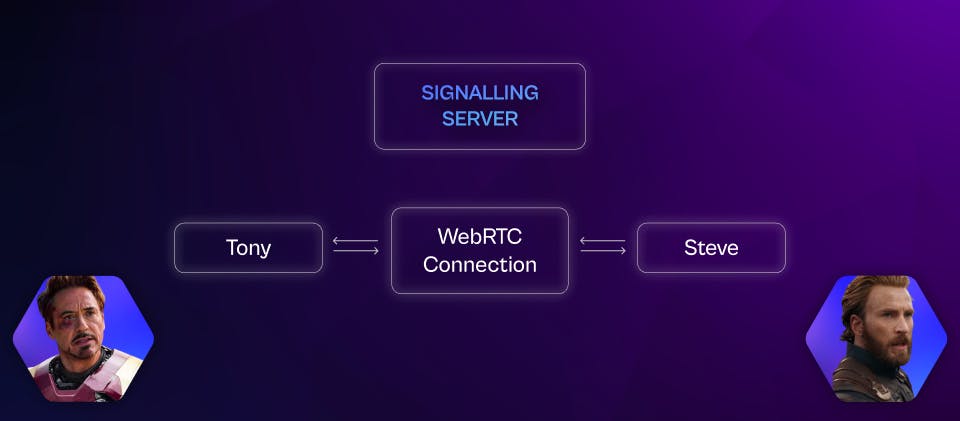
Now, once Steve’s SDP response reaches the Signalling server, the server opens an RTC connection between Tony and Steve. To put it simply, an RTC connection basically means Steve and Tony are now connected in real time for a voice call via the Internet 🤝
In terms of security and anonymity, we can say:
Security 🔒: Wallets and Lens profiles are non-custodial and no one can actually access them without you. Also, your chats are secured with end-to-end encryption. Anonymity 🎭 : You are only limited by the number of wallets you can create for anonymity.
Not only this, we won an array of prizes for AudioX in EthOnline, the largest hackathon by EthGlobal, you can get to know more about this here.
Well, that’s amazing, what’s next? 🤯

Well, the problem is we still have to use a centralized server to make the connection between two addresses, but we plan to create a system where this issue can be addressed. We see a bunch of applications here, that can be:
Integration with DApps 🛠
AudioX SDK can be implemented in other DApps that are currently focusing on innovating the social graphs of decentralized tools of communication.
Future of Twitter spaces 🔊
AudioX can also be used as an alternative to Twitter space with a web3 touch of anonymity!
A new social platform 🎤
With a proper on-chain discoverability algorithm in place, this can be used as a base to find new web3 degens without actually losing anonymity! These are just some use cases we could think of! If you have any questions/suggestions or team up in mind, reach us out on Twitteror land on our discord! ✌
